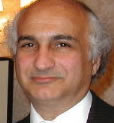 |
| Carol Haave, Judith Latham, Amy Roth, Ed Preston, Teri Murphy, Chris Sandrolini, Frances Eddy, Onley, Dr. Ahmad, Edie Russo |
 (Arlington, VA) Presenting Bishop and Seeker for an interfaith salon yesterday, I focused on how the book does or does not demonstrate the move from interfaith dialogue to interfaith metalogue. This approach was suggested to me by James Jones, Integral Institute co-founder and lay leader at Unity Fairfax.
(Arlington, VA) Presenting Bishop and Seeker for an interfaith salon yesterday, I focused on how the book does or does not demonstrate the move from interfaith dialogue to interfaith metalogue. This approach was suggested to me by James Jones, Integral Institute co-founder and lay leader at Unity Fairfax.I read three dialogues from the book, two with my favorite Muslim imam, Dr. Dean Ahmad of the Minaret of Freedom Institute who was at the salon, and one with my co-author, Bishop Phil Thomas of Highview who will attend the next salon.
We placed several themes on the table:
- Dialogue is normally advocacy for one's own position. Metalogue seeks something beyond
- Metalogue is a conversation about the conversation one is having--which is what Bishop Thomas and I shared during the period we were editing our own dialogues for the book.
- Metalogue requires that at least one of the participants be aware of the context from which they are speaking: how are my beliefs about this question shaped by history, society, and my own personal upbringing and psychology? James used his favorite term "intersubjective context" here, creating a connection across the room with Barbara Kinney, a developmental psychologist and interspiritual counselor from One Spirit Learning Alliance in New York. Barbara added that in metalogue, one notices one's own shadow projections--the part of ourselves we deny and see exaggerated in others
- I thought Barbara offered the best definition of metalogue as co-creating something fresh that transcends the participants' prior beliefs
- But then Dr. Ahmad offered a definition that took my breath away, "Normally we dialogue about worship, but perhaps it becomes metalogue when we dialogue as worship."
 |
 |
 Amy Roth of International Justice Mission offered that The Bishop and the Seeker does exactly that by modeling how to have the kind of dialogue that opens fresh possibilities. "Seek and ye shall find," she said--which also took my breath away, because it happened to be what I'd had inscribed on the cake we were just about to share.
Amy Roth of International Justice Mission offered that The Bishop and the Seeker does exactly that by modeling how to have the kind of dialogue that opens fresh possibilities. "Seek and ye shall find," she said--which also took my breath away, because it happened to be what I'd had inscribed on the cake we were just about to share.
The salon was a regular meeting of Abraham and Aristotle and All their Children, which is graciously hosted by retired Voice of America producer Judith Latham. In September we will meet for part 2 in which we'll look at the polarities in religious beliefs about materialism, literal translations of holy books, and the role of government in enforcing "God's law."

No comments:
Post a Comment